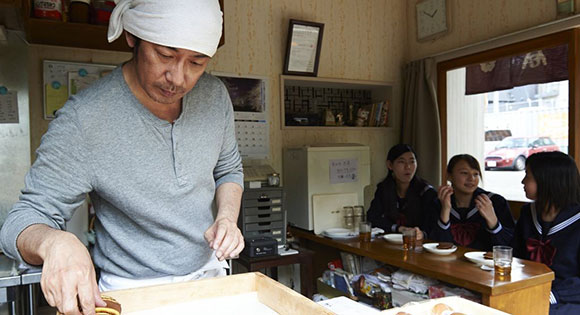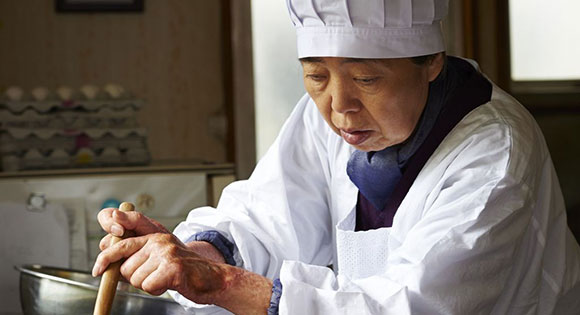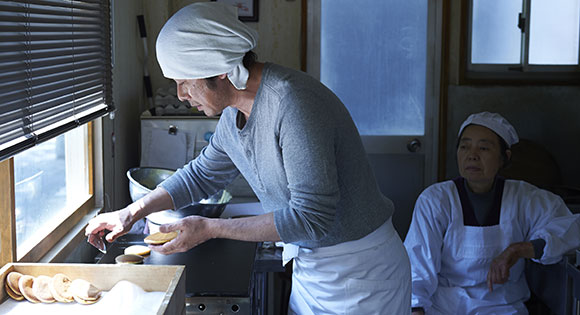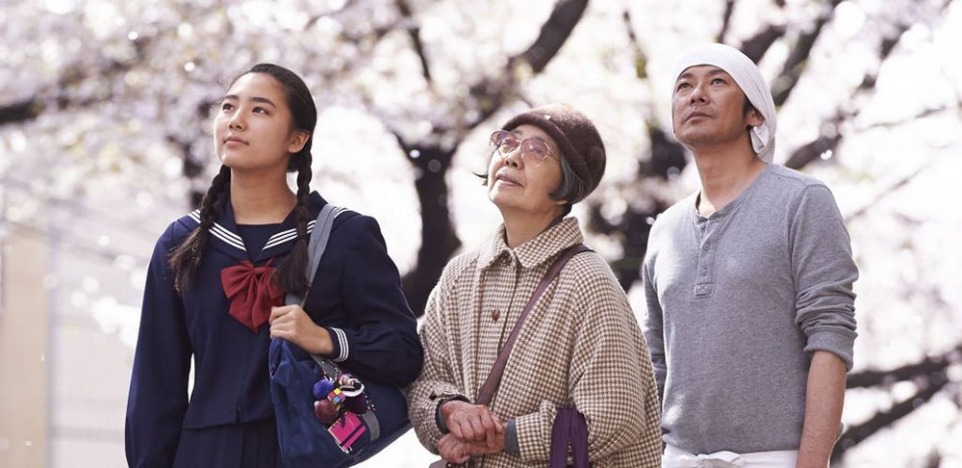Cherry trees in Japan are highly revered and appreciated for their beauty and symbolic meanings. They bloom for a very short time, a seemingly instantaneous flourishing and then death. That is why in the Japanese culture, the blossoms serve as a reminder of mortality. Life is short and every moment should be lived to the fullest.

In Japanese director Naomi Kawase's exquisite film based on a novel by Durian Sukegawa, Sentari (Masatoshi Nagase) runs a shop where makes and sells dorayaki pancakes filled with sweet bean paste. He is a sad, middle-aged man burdened by past mistakes and poor choices. When he advertises for an assistant, Tokue (Kirin Kiki), a 76-year-old woman responds. Even though he is doubtful that she will be able to handle the physical strain of long hours, he makes her very happy by hiring her for the low wage she proposes.
Sentari and Tokue meet when the cherry blossoms are in full bloom. For many in Japan, these beauties signify hope. The world of nature offers us manifold blessings if we are only alert enough to see them and rejoice in their presence.

After tasting the sweet bean paste that Tokue makes, Sentari is astonished. It is so much better than the store-bought paste he has been using. "Listen for the stories the beans tell," the wise old lady tells him. Her sensuous appreciation of the bounties of the natural world draws out the best in the ingredients for the paste. Wakana (Kyara Uchida), a school girl and loyal patron of Sentari's, is very much taken by Tokue's culinary talents and spiritual perspective.
Customers flock to the shop for the delicious pancakes, and Sentari begins to see a way out of a burdensome debt. But then customers say that the deformities in the old lady's hands are a sign of leprosy. Sentari is forced to let her go. He and Wakana visit her at a sanitarium, and she confesses the deep pleasure she had working for him. Later, Sentari receives a cassette recording on which she talks about her positive philosophy of life, the wonders of nature, and the necessity of living in the present moment.

Albert Schweitzer once wrote:
"The older we grow, the more we realize that true power and happiness come to us only through those who spiritually mean something to us. Whether they are near or far, still alive or dead, we need them if we are to find our way through life. The good we bear within us can be turned into life and action only when they are near to us in spirit."
Such is the wisdom and truth of Naomi Kawase's heart-affecting story of one old lady's immense impact on a depressed middle-aged man and a young girl seeking her own special path in life. Once again, we turn to the cherry blossom as a symbol of love and joy. In Sweet Bean, it also promotes spiritual awareness!
